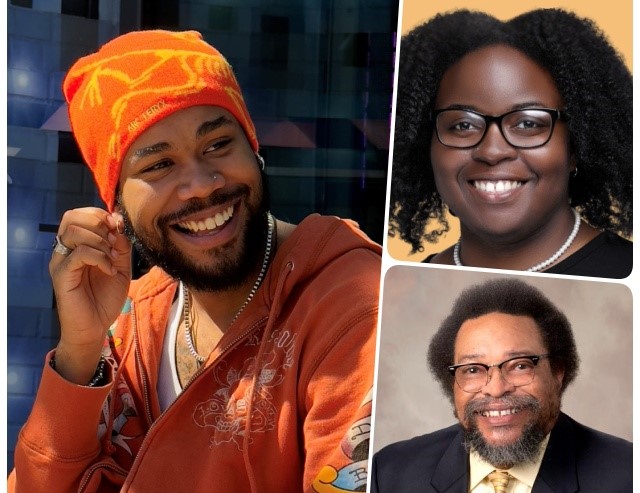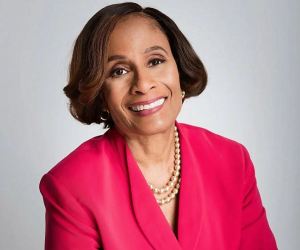By Aria Brent
AFRO Staff Writer
abrent@afro.com
Dr. Martin Luther King Jr. remains one of the most iconic figures of the 20th century, a towering leader of the Civil Rights Movement who championed the strategy of nonviolent resistance. While King’s work has been celebrated globally, his methods have not been without criticism. Although his peaceful approach to activism heeded results, there have always been questions about the most effective strategy of protesting.
Other notable civil rights figures, such as Huey P. Newton and Malcolm X, are often compared to King due to their more militant approaches. The AFRO interviewed several activists who are carrying the torch King set ablaze to discuss his nonviolent strategies and if they can still be applied to the issues being faced today.

“Dr. King’s nonviolent strategy was the proper approach for that time. I think there was a lot more at play for his time and I think a lot of it led to slower progress being made,” said Timothy Young of Houston,Texas. “I don’t think there was anything necessarily wrong with how he went about it [activism] I just don’t see it being as relevant now. I don’t think that those strategies are as progressive now and I don’t think that they necessarily fit the narrative that we’re facing as Black people in the 21st-century.”
Young’s passion for civil rights and social justice is rooted in his upbringing in the Deep South. Being born and raised in Jackson, Miss., Young says he was exposed to a lot of issues that are rooted in systemic racism. Once he saw how these issues were impacting other parts of the country during the George Floyd riots he became more involved in organizing and community building.
“Both peaceful and radical activism work, they just serve different purposes. Peaceful protests are great for getting legislation passed and it makes for good news worthy content. It’s the kind of activism that elected officials can participate in and support,” Young said. “However, I think that there should be a little more organized chaos. Disruptive and action oriented protests get the public’s attention and allows the system to understand just how fed up the people really are.”
Taylor Turnage shared similar sentiments.

“There is definitely a need for non-violent activism. Dr. King’s approach worked well, but I think they should’ve ruffled more feathers,” Turnage said “I understand his stance for equality and integration, but I think in doing that he then took an approach that was centered around appeasing White people. Of course, there were people who didn’t approve of or appreciate what they were doing, but for those who were in support of it or indifferent–it felt like he chose an option that was safe for their approval.”
Turnage’s interest in activism and advocacy started during her adolescence when she began to defend her classmates who were too shy to stick up for themselves. The desire to speak up for the voiceless and help her community followed her to college when she began to work with her campus chapter of the National Association for the Advancement of Colored People (NAACP).
When the nation saw a series of riots and violent protests in the Summer of 2020 after the murder of George Floyd, much like Young, Turnage took the opportunity to deepen her involvement with activism. As she began to receive recognition for her organizing, she realized that, much like Dr. King, she was the figurehead for a movement that included many.
“My priority as an activist is being a servant leader not a dictator. My job is to listen more than I talk or direct. Of course, there are things that I want to see happen within the work we do but it’s about the community,” she said. “I’m here to serve my community and I realized I can best serve my community by giving other people the chance to be seen. I might be the leader of the movement but I’m not in charge– the community is.”
Turnage’s preference of being behind the scenes is something she adopted after learning how many people didn’t receive recognition for the role they played in the Civil RIghts Movement.

Although Young and Turnage are currently continuing and adding onto the work of Dr. King, life-long Jackson resident, Frank Figgers discussed what it was like to live during King’s era of activism. The civil rights veteran shared how timeless the nonviolence strategy is.
“Dr. King was far ahead of his time. He was so well-informed and was able to share his knowledge with the community to bring them to a level of consciousness they may not have had beforehand,” said Figgers. “His experience as a preacher gave him oratory skills that made it easy to connect with the people and he used that to share his strategy with communities across the nation. It’s a style of activism that has been well received and copied for years.”
Figgers went on to note that during that time, there was no need for violence or disruption because being Black and having the nerve to exist in certain spaces was a political statement in and of itself.
“I can’t think of a more direct approach than going somewhere that you were blatantly told– matter of fact, outlawed from going to. When they make laws that say you aren’t allowed to do something and you do it anyway, that is true rebellion,” he said. “Our existence was violent to them.”
While King’s work was transformative, it was one part of a larger mosaic of activism that encompassed varying perspectives and strategies. Critiques of his methods do not minimize his legacy but instead highlight that justice movements flourish through a diversity of voices and approaches.
The post Activists reflect on Dr.King’s legacy and methods of activism appeared first on AFRO American Newspapers.










